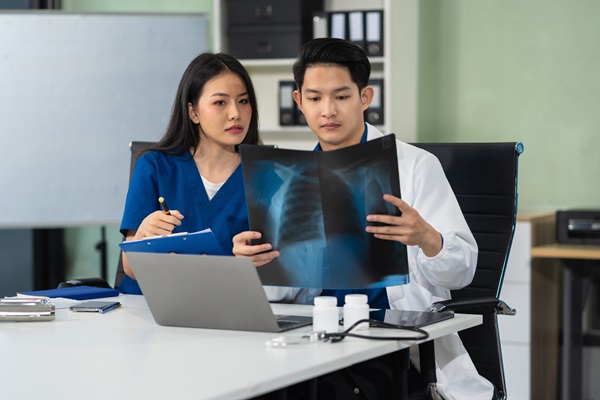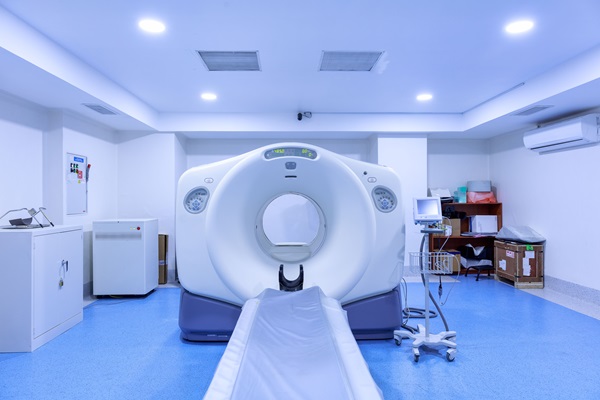How School Physicals Support Student Health and Wellness

Regardless of whether a school physical examination is necessary for admission, back-to-school season is a great time to schedule these health checkups. Not only do these checkups ensure the student’s general health, but they also allow for early detection of disease and mental health problems. Learn how a school physical can help support your student’s overall health and wellness.
What is a school physical?
A school physical is a thorough medical examination in which a healthcare provider checks a student’s general physical and mental condition. Schools and colleges often require school physicals to confirm that students are fit to participate in team sports and other recreational activities. They may also be required for admission to protect the continued health of the student body, such as by keeping each student current with their immunizations.
Health and wellness benefits of school physicals
Routine school physicals can support student health and well-being in the following ways:
Ensure good health and development
The primary goal of any physical examination is to get a clear picture of the patient’s overall health. Students who receive a physical will also continue to visit the doctor to ensure healthy growth and development. This examination involves checking that vital organs (mainly the heart and lungs) are in working condition. The provider may order a basic metabolic panel (BMP), a type of blood work, for a better look at the kidneys, blood sugar levels, and electrolyte levels.
Detect diseases early
School physicals can help detect diseases early. Regular health assessments give students a better chance of catching diseases and health conditions in their earliest stages, making treatment easier, less intensive, and often more effective. A school physical can help detect diseases such as diabetes, cardiovascular diseases, autoimmune disorders, respiratory conditions, and more.
Stay current with immunizations
A vaccination or immunization can prevent many potentially life-altering or fatal diseases. Thus, ensuring the student is fully immunized according to their age group is a key part of any school physical. The healthcare provider can usually administer any missing immunizations on the day of the physical.
Find support through a mental health check-in
Growing up can be hard, especially if a student’s family has financial or personal hardships. Unfortunately, these hardships can impact a child and lead to mental health struggles. School physicals typically include a short mental health screening for anxious and depressive symptoms to help students through these times and minimize any negative impact. If desired, the healthcare provider can refer the student to a mental health professional.
Note that children can also have mental health disorders. Some of the most common to develop during childhood are attention-deficit/hyperactivity disorder (ADHD), obsessive-compulsive disorder (OCD), anxiety disorders, and clinical depression. Mental health screenings during school physicals can detect the early signs of these disorders and connect students with life-saving mental health treatment.
Get professional advice on lifestyle changes
Even healthy students can sometimes benefit from making a few lifestyle changes. Common examples include adopting a more consistent sleep schedule, exercising more, and eating a well-balanced diet. Students can ask healthcare providers for personalized advice on these topics during a school physical.
What happens during the physical?
A school physical has several components. The first is an assessment of the student’s medical history and immunization records. The healthcare provider will ask questions about the student’s current health, such as whether they are experiencing any unusual physical or psychological symptoms.
Next, the healthcare provider will assess the student’s physical health through various tests. Students can expect to have their vitals taken (blood pressure, pulse rate, respiration rate, and body temperature) and vision screened. The provider will measure the patient's height and weight. The provider will listen to the student’s heart and lungs, as well as look into their ear canals. They may do a quick neurological test, in which they hold up two fingers in front of the face and have the student track them with their eyes. A physical can also involve testing the patient's range of motion and reflexes.
Next steps
If the student is found to be in good health, the healthcare provider will approve and sign any papers provided by the school. However, health conditions and concerns will need to be addressed. This may be as simple as administering missing immunizations or providing accommodations, such as asthma inhalers. Alternatively, if the student is diagnosed with an underlying condition like cardiovascular disease, they would likely need more extensive treatment before they could participate in a school sport.
Book a school physical today
School physicals are the cornerstone of student health. To schedule your student’s physical examination, contact Texas Urgent Care & Imaging Center. We provide physicals to students in New Caney and the surrounding communities.
Request an appointment here: https://tx-urgentcare.com or call Texas Urgent Care & Imaging Center at (832) 941-1894 for an appointment in our New Caney office.
Check out what others are saying about our services on Yelp: School Physical in New Caney, TX.
Recent Posts
X-rays are popular tools medical professionals use to diagnose a wide range of health conditions quickly and safely. They allow these professionals to see inside the body without invasive procedures, making them invaluable in urgent and primary care settings. Whether identifying fractures, monitoring chronic conditions, or detecting abnormalities, X-rays are critical in ensuring timely and…
A CT scan, or computed tomography scan, is a diagnostic tool that provides detailed images of the body’s internal structures. This non-invasive procedure helps medical professionals diagnose and monitor various conditions, from injuries to chronic illnesses. Knowing what to expect during a CT scan can ease concerns and prepare patients for a smooth experience.A CT…
If you work in public transportation, you may need to have a DOT drug screening. The Department of Transportation (DOT) regulates this test and requires it for you. You might be wondering what this test is like. Keep reading to learn more.Congress passed the Omnibus Transportation Employee Testing Act in 1991. Congress knew that the…
Walk-in clinic provide convenient, accessible health care for non-emergency medical needs, making it an ideal choice when immediate attention is necessary. Understanding when to visit a clinic can help patients save time, avoid unnecessary trips to the emergency room, and receive quality care for their health concerns. These clinics handle various issues, offering fast, professional…


